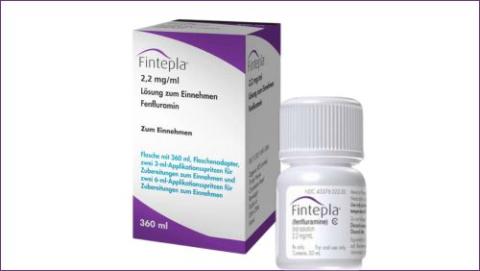
Epilepsy Ireland has made a submission to the National Centre for Pharmacoeconomics (NCPE) supporting the reimbursement of the anti-seizure medication Fenfluramine (Fintepla) in Ireland, for patients living with Lennox Gastaut Syndrome (LGS).
Lennox-Gastaut syndrome (LGS) is a childhood epilepsy syndrome that typically develops before the age of five, and often persists into adulthood. People living with LGS often experience a range of different seizure types. Due to the refractory nature of the condition, currently available treatments often do not work well, which has a huge impact on patients and the families that support them.
Fenfluramine (Fintepla) is a new medication which has strong clinical trial data supporting its efficacy in the treatment of LGS. For that reason, it is vital that the new drug is reimbursed by the HSE. Reimbursement would mean that it will be available to patients under the medical card and long-term illness schemes.
As things stand, while the medication is licensed for use in Ireland, it is not reimbursed and is therefore not an option for many families who are caring for loved ones with LGS due to the significant and unsustainable costs associated with self-funding the medication.
In preparing our NCPE submission, we sought feedback from families caring for a loved one with LGS. Their feedback was pivotal and provided context for the real-life challenges and experiences that caring for someone with such a challenging form of epilepsy can bring.
We highlighted how uncontrolled seizures can have an impact on quality of life; reduce families to a sole income due to the significant care needs associated with LGS; and how uncontrolled, prolonged seizures can prove to be a significant cost burden to the state due to the need for specialist treatment and the use of emergency services. We also highlighted that LGS is associated with a higher risk of epilepsy mortality and Sudden Unexpected Death in Epilepsy.
Significantly, our submission also contained direct feedback from families who have real life experience of caring for a loved with LGS, which highlighted the need for access to new treatments and the hope for an improved quality of life – as the below quote highlights:
For me, it is living in a constant state of fear and helplessness, and anger at the lack of support and understanding of the urgency around new treatments, the injustice of it. For X is her loss of independence, the inability to live a normal life, the stigma of suffering from such a mysterious illness, the side effects of medication, the loss of dignity, the uncertainty of her future and whether she will be able to fulfil her dreams. The hope that some new treatment will become available is a challenge because as we wait, more harm is done
We believe that these kinds of real-world experiences, coupled with existing scientific data presents a strong case for reimbursement.
In terms of the next steps in the reimbursement process, the NCPE have conducted their review of the application submitted by the medication’s manufacturer, UCB Pharma and have concluded:
The NCPE recommends that Fenfluramine be considered for reimbursement if cost-effectiveness can be improved relative to existing treatments.
This recommendation means that there is strong evidence for the medication’s use, but that negotiations with the manufacturer on pricing should continue. This is a common recommendation at this juncture. The NCPE’s recommendation, alongside our patient submission will now be sent to the HSE’s Corporate Pharmaceutical Unit and it will be considered by the HSE Drugs Group as part of the decision-making process.
It is crucial to ensure the patient voice is central to the process of reimbursing new drugs, alongside scientific and economic data, and we would like to thank everyone who contributed to our submission. Given the positive impact of the medication – as reported by families in our submission – we firmly believe that more patients living with Lennox Gastaut Syndrome deserve an opportunity to access this vital new treatment. As one contributor pointed out:
I have been trying to get access to it but cannot because it is too expensive and there isn’t a compassionate use scheme that we can avail of. I know that there are still side effects to be tolerated and that it might not work, but I want the opportunity to try. Having to fight for this is really hard on top of the burden of seizures. I know that it has the capacity to improve the quality of life for those with atonic seizures, and can cause a dramatic reduction in those seizures. I know that it gives hope to Dravet and LGS families.
We look forward to providing further updates on this process in the near future.
